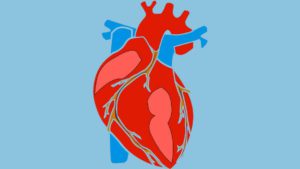Statcare is unique in having comprehensive and confidential STD testing, prevention, and treatment in one place. Testing and diagnosing sexually transmitted infections (STIs) or sexually transmitted diseases (STDs) are only the beginning of a process. The next, and more important one, is finding a treatment option that works for you.
HIV/AIDS PEP and PrEP Treatment
The human immunodeficiency virus, or HIV, causes AIDS. The virus works to weaken a person’s ability to fight infections.
Some symptoms of HIV include:
- fever
- headache
- swollen lymph nodes
At Statcare’s HIV testing center, we can assess your risk and provide treatment:
- PEP (post-exposure prophylaxis) treatment with antiretroviral medicines (ART). This is important if you believe you may have HIV as these can help prevent it. You have to take PEP within 72 hours after recent possible exposure to HIV.
- If you think that you will be in a high-risk situation, Statcare providers can also prescribe PrEP (Pre-exposure prophylaxis). PrEP, is a way for people to reduce their HIV risk by taking a pill every day. These meds work together to prevent HIV infection. PrEP, taken regularly, reduces the risk of HIV infection by up to 92%.
Once someone has HIV, the goal of HIV treatment is to keep a person’s levels in check as this is a condition that does not currently have a cure. The good news is, with proper treatment, a person living with HIV can lead a relatively healthy life.
Chlamydia Treatment
Chlamydia is one of the most common Sexually transmitted bacterial infections in the United States according to 2017 reports from the Centers for Disease Control and Prevention (CDC). About 45 percent of cases occurred among females between 15 and 24 years old.
The increase in the spread of Chlamydia is due, in part, to the fact that most people don’t show symptoms. Often, men, women, and their partners won’t know they have the infection until it shows up when you get tested.
Common symptoms that may appear include:
- irritation in the genital area
- painful urination
- itching
- swelling
Chlamydia can be treated with antibiotics. It’s imperative that you finish the entire prescription as directed so that the infection does not become resistant to the drugs. Also, make sure your partner seeks treatment whether or not they’re showing symptoms. Follow up with another STD blood test 3 months after you finish your antibiotic treatment to confirm that you and your partner are free of STDs.
Gonorrhea Treatment
In 2017, the CDC medically reviewed Gonorrhea and found that cases increased by 67% over the past four years with rates nearly doubling among men. Gonorrhea is similar to Chlamydia and there is also treatment available for it. The trouble is that some strains have become resistant to treatment.
Possible gonorrhea symptoms in men:
- Burning sensation when urinating
- White, yellow, or green penile discharge
- Painful or swollen testicles
Possible symptoms in women can include:
- Pain and a burning sensation when urinating
- Increased vaginal discharge
- Bleeding or spotting between periods
Possible symptoms of rectal infections (men and women):
- Anal discharge
- Anal itching
- Sore feeling
- Anal bleeding
- Painful and irritating bowel movements
If you test positive for Gonorrhea during an STD check, you may need to take more than one drug to treat it. Failure to properly treat Gonorrhea can lead to permanent damage to both the male and female reproductive organs.
Therefore, take your doctor’s medical advice seriously and don’t delay seeking treatment. At Statcare, we have the medication on site. Be prepared to tell your partner they will need treatment, too.
Syphilis Treatment
Syphilis is a highly contagious disease. CDC data showed that, in 2017, Syphilis cases increased by 76% with 70% of cases found among men who had sexual intercourse with other men. Syphilis is mostly spread through penetrative sex. However, it can be transmitted through oral sex, kissing, and prolonged skin-to-skin contact.
Fast diagnosis and treatment are crucial for those with Syphilis. Even without treatment, the sores tend to heal without scarring. This makes the disease harder to recognize, so regular STD screening is necessary for those who are sexually active. Without treatment, Syphilis can cause some major health problems, such as arthritis, brain damage, and blindness.
The infected person may also develop symptoms such as:
- fever
- swollen lymph glands
- sore throat
- patchy hair loss
- headaches
- weight loss
- muscle aches
- fatigue
At Statcare, medical providers give post-exposure treatment for Syphilis as recommended by the CDC. They can do this while you await test results for Syphilis.
Treatment for Syphilis is relatively easy. Your doctor will often prescribe you antibiotics depending on how bad the infection is. Follow-up testing after treatment is the only way to make sure that you have been completely cured of the infection.
Herpes Simplex 2 Treatment
Once you get Genital Herpes (Herpes simplex Type 2 or HSV 2), it stays in your body forever. While you can’t fully cure the infection, there are ways to manage the symptoms, which are often mild, so it doesn’t interfere with your daily life.
Common symptoms of genital herpes include:
Sores (around the genitals, rectum, or mouth)
- fever
- body aches
- swollen glands
Antiviral medication is typically prescribed in order to reduce the length and severity of the initial and subsequent outbreak of genital herpes. After the first outbreak with HSV 2, patients should expect several other flare-ups per year. Thankfully, these will lessen over time — especially with the right treatment and follow-up.
Herpes 2 treatment options may include suppressive therapy. Patients who suffer frequent herpetic outbreaks can take daily medicine to keep genital herpes symptoms at bay. This can also prevent frequent outbreaks.
HPV Prevention and HPV Treatment
HPV, or human papillomavirus, is a very common infection that rarely shows any symptoms. It is undetectable and may go away on its own.
STD testing is required to diagnose HPV as some types can lead to cervical cancer or penile cancer. This is often mistaken as Molluscum Contagiosum as both are contagious and both involve warts.
The FDA approved the HPV Vaccine (Gardasil) for men up to 45 years of age. Now, both men and women 27-45 years of age can get the vaccine to prevent HPV. About 60 of the 100 types of HPV cause hand, feet, or genital warts. Warts can show up weeks or months after sexual contact with an infected partner.
An HPV test for women can be done with the Pap test. Doctors use an anal Pap test to diagnose HPV in high-risk men. Make sure to go to a healthcare facility that offers both.
If you have untreatable warts, you may choose to laser or freeze them off. You can do this without requiring any prescription from your doctor, but it will likely cost you. Explore your options and ask your doctor for their recommendation.
Understanding STD Treatment Options
Each individual STD treatment plan will vary. Ask your health care provider about treatment options available for you.
At Statcare, injectable medicines are available and treatment initiated without delay. Maintaining your health is so much more important than any worry you may have. There is a sense of pride that comes to patients who take control of their own health and the health of their sexual partners.
The doctors at Statcare Urgent Care can answer questions you have and provide you with health information about the different treatment options. We encourage everyone to know their STD status and take the right steps to keep their body healthy.
If you want to learn more about our services, visit our STD Testing & Screening page or give us a call at (917) 451-3951. We’re happy to help you through the entire testing process.










